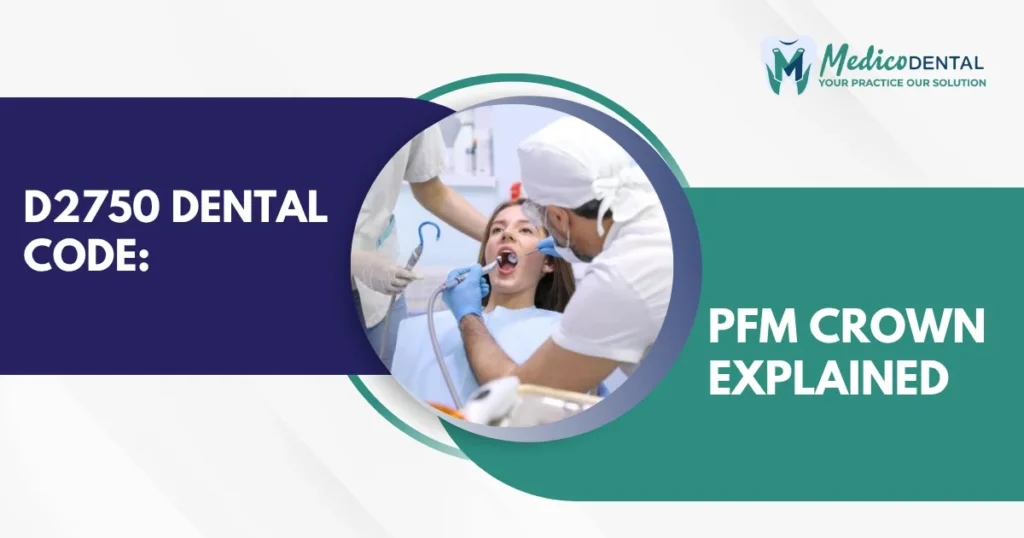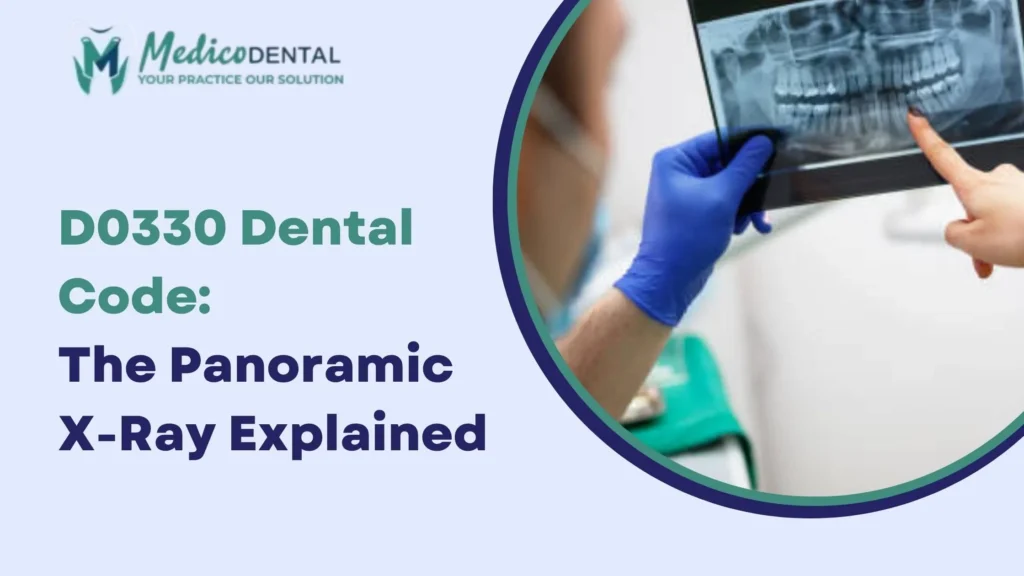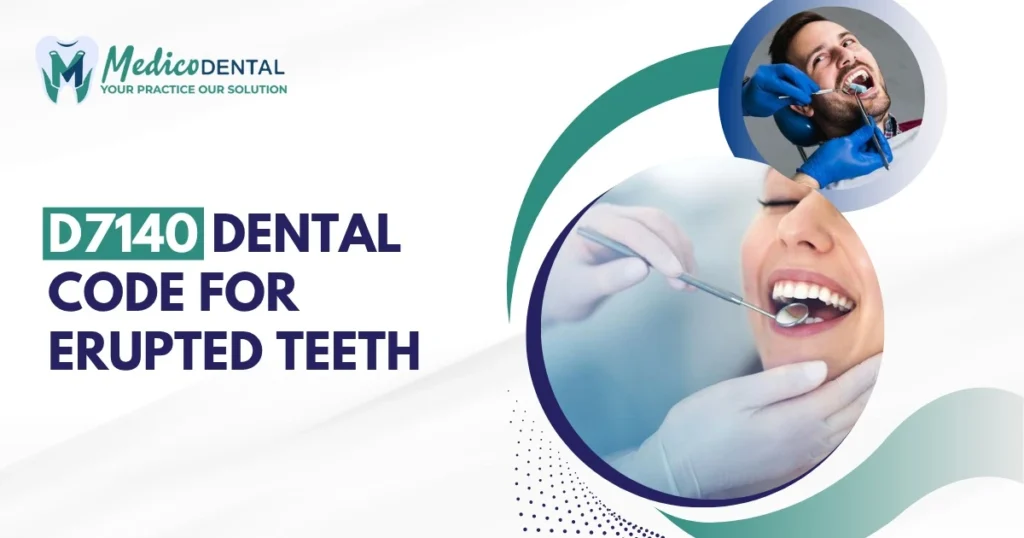When it comes to dental restorations, choosing the right crown is crucial for both durability and aesthetics. The D2750 crown offers an ideal solution for patients seeking a combination of strength and a natural look. Made from porcelain fused to high noble metals like gold or platinum, this crown not only enhances the appearance of your smile but also provides long lasting protection and function. Whether you’re repairing a damaged tooth or improving your overall dental health, the D2750 crown is a reliable choice.
What is the D2750 Dental Code?
The D2750 dental code is used to describe a porcelain fused to a high noble metal crown. This dental procedure involves placing a durable, aesthetically pleasing crown made of porcelain, fused to high noble metals like gold, platinum, or palladium, onto a prepared tooth. This type of crown is often chosen for its ability to blend seamlessly with natural teeth while offering superior strength.
Understanding the D2750 Code and Its Use in Dentistry
The D2750 code refers to a porcelain fused to a high noble metal crown, which is a dental restoration that combines the benefits of both metal and porcelain. The high noble metal base (gold, platinum, or palladium) provides excellent strength and durability, while the porcelain coating offers a natural tooth-like appearance. It’s a go to option for people who need a long lasting crown that also looks aesthetically pleasing.
Materials Used:
Porcelain
This is the visible part of the crown, and it mimics the natural color of teeth, offering an aesthetic solution for those who want a more natural smile.
High Noble Metals
Materials like gold, platinum, or palladium make the crown extremely durable, resistant to corrosion, and biocompatible. This is especially important for patients who may have metal allergies, as these metals are less likely to cause any adverse reactions.
The D2750 Dental Procedure: What’s Involved?
The process of getting a D2750 porcelain fused to a high noble metal crown involves several important steps to ensure a perfect fit and a strong, long lasting restoration.
Step by step Breakdown of the Process
Tooth Preparation
The first step is to prepare the tooth that will receive the crown. The dentist will clean and shape the tooth, ensuring it’s ready to securely hold the new crown. Sometimes, a portion of the tooth might need to be removed to make space for the crown.
Crown Fabrication
After the tooth is prepared, a mold is taken and sent to a dental laboratory. The lab will create the custom crown by fusing porcelain to a high noble metal base. This process ensures a natural appearance that also provides strength and durability.
Cementing the Crown
Once the crown is ready, it will be cemented onto the tooth. Your dentist will ensure that it fits perfectly, both in terms of appearance and function, allowing you to chew comfortably.
Benefits of D2750 Crowns
D2750 crowns offer several advantages that make them a top choice for those seeking a durable and aesthetically pleasing dental restoration.
Aesthetic Appeal and Natural Look
One of the most significant advantages of D2750 crowns is their natural appearance. The porcelain material is carefully crafted to match the color of your surrounding teeth, making it difficult to tell the difference between your crown and natural teeth.
Durability and Corrosion Resistance
The high noble metals used in D2750 crowns make them incredibly strong and resistant to wear. They won’t easily crack, break, or chip, providing a reliable long term solution. Additionally, these materials are corrosion resistant, ensuring that your crown stays intact and functional for years.
Biocompatibility for Patients with Metal Allergies
Since the metals used in D2750 crowns are high noble (like gold and platinum), they are generally safe for individuals with metal sensitivities or allergies. These metals are more biocompatible than base metals, reducing the risk of allergic reactions or irritation.
D2750 vs Other Dental Codes
It’s helpful to understand how D2750 compares to other similar codes used for dental crowns. While all of these crowns serve the same purpose, the materials and methods used can differ.
D2740: Porcelain Crown
A D2740 porcelain crown is similar in appearance to the D2750 but doesn’t use the high noble metal base. Instead, it’s made entirely of porcelain. While porcelain crowns offer the same aesthetic benefits, they may not be as strong or durable as a D2750 crown.
D2751: Porcelain Fused to Predominantly Base Metal Crown
The D2751 code refers to a crown that uses porcelain fused to a predominantly base metal, like nickel or chromium. While these crowns are typically more affordable, they can sometimes be less durable and may cause allergic reactions in some individuals. They also don’t have the same aesthetic appeal as a D2750 crown due to the metal’s visibility.
D2752: Porcelain Fused to Noble Metal Crown
A D2752 crown is similar to the D2750 but uses a noble metal instead of a high noble metal. While still durable and biocompatible, noble metals like silver and palladium are less valuable and not as strong as high noble metals like gold. These crowns offer a balance between affordability and durability, but may not provide the same longevity or aesthetic quality as the D2750.
Common Applications of D2750 Crowns
D2750 crowns are often used when a patient requires a durable, long lasting dental restoration that also looks natural. These crowns are versatile and can be used in a variety of situations.
When D2750 Crowns Are Recommended
D2750 crowns are typically recommended in the following cases:
- Severely Decayed Teeth: When a tooth is too damaged by decay to support a filling but still needs to be preserved, a D2750 crown is an ideal solution.
- Broken or Cracked Teeth: If a tooth has cracked or broken down due to trauma or wear, a D2750 crown can restore both function and appearance.
- Cosmetic Improvements: People seeking an aesthetic upgrade for teeth that are discolored, misshapen, or uneven can opt for a D2750 crown for a more natural, uniform smile.
- Teeth That Have Had Root Canals: After a root canal, a tooth often needs extra support. A D2750 crown provides both protection and a natural appearance.
Ideal Patients for D2750 Crowns
The ideal candidates for D2750 crowns are:
- Patients Seeking Aesthetic and Durability: D2750 crowns are perfect for individuals who want a restoration that blends with natural teeth while offering strong durability.
- People with Allergies to Certain Metals: Since the high noble metal used is biocompatible, those with metal allergies can safely opt for D2750 crowns without concerns of irritation.
- Those Looking for Long Lasting Results: The combination of porcelain and high noble metal makes these crowns resistant to wear, corrosion, and discoloration, making them ideal for those seeking a lasting solution.
Insurance Coverage for D2750
One of the most important aspects to consider when opting for a D2750 crown is insurance coverage. Dental insurance policies and dental credentialing polices vary widely, and understanding your coverage options can make a big difference in the overall cost.
Insurance Considerations and Billing Tips
- Check Coverage: Before committing to a D2750 crown, it’s crucial to contact your insurance provider to understand if it’s covered. Most dental insurance plans do provide coverage for crowns, but the percentage covered may vary based on the material (e.g., high noble metals can sometimes cost more).
- Pre Authorization: Some insurance plans may require pre authorization for crowns. It’s best to consult with your dentist to submit a pre authorization request before beginning the procedure.
- Cost Breakdown: Dental crowns are often covered under major restorative dental care. However, keep in mind that you may still have to pay a portion of the cost, such as a deductible, co-pay, or the difference between what the insurance covers and the total cost.
- Alternative Options: If D2750 is not fully covered, some plans may offer partial coverage for porcelain crowns fused to a base metal (like the D2751), which may lower your out of pocket expense.
Why Choose a D2750 Crown for Your Dental Restoration?
Choosing the right type of crown for your restoration is an important decision. D2750 crowns are known for their balance of aesthetics and durability, but like any dental treatment, there are both advantages and disadvantages.
Pros and Cons of Opting for D2750
Pros:
- Natural Appearance: The porcelain fused to high noble metal offers a superior aesthetic result, blending perfectly with natural teeth.
- Strength and Durability: These crowns are incredibly strong, resisting fractures, wear, and corrosion, making them ideal for long term use.
- Biocompatibility: Ideal for patients with metal sensitivities, the high noble metal base ensures minimal risk of allergic reactions.
- Versatility: Suitable for both visible and back teeth, D2750 crowns offer versatility in terms of where they can be used.
Cons:
- Cost: D2750 crowns are more expensive than other crown types due to the use of high noble metals like gold and platinum. Insurance may not cover the full cost.
- Longer Procedure Time: The fabrication of D2750 crowns requires time in the dental lab, which may mean multiple visits for placement.
- Wear on Opposing Teeth: While durable, porcelain can sometimes cause wear on opposing teeth over time, although this can be minimized with proper care.
Long Term Benefits
- Durability: D2750 crowns are built to last. With proper care, they can remain in place for 10 to 15 years or even longer, making them a smart long term investment for dental restoration.
- Reduced Risk of Further Decay: Since the D2750 crown fully covers the tooth, it provides a protective barrier, reducing the risk of further decay or damage to the underlying tooth structure.
- Better Function: Not only do they enhance appearance, but D2750 crowns also restore the full function of a damaged or decayed tooth, allowing you to eat, speak, and smile comfortably.
Conclusion
The D2750 dental code represents a durable, aesthetically pleasing solution for restoring damaged teeth. With its combination of porcelain and high noble metals, it offers both natural looking results and superior strength, making it a go to choice for individuals seeking a long lasting dental crown. Whether for cosmetic improvement or to restore the functionality of a tooth, D2750 crowns meet the needs of many patients. If you’re considering a crown, the D2750 is a reliable, long term solution that can serve you well.
FAQs
How long does a D2750 crown last?
Ans. A D2750 crown can last 10 to 15 years with proper care, making it a durable solution for dental restoration.
Is a D2750 crown suitable for front teeth?
Ans. Yes, D2750 crowns are perfect for front teeth due to their natural appearance. The porcelain can be crafted to blend seamlessly with your surrounding teeth.
Will insurance cover the cost of a D2750 crown?
Ans. Insurance may cover a portion of the cost, but you should check with your provider for specific coverage details. High noble metal crowns may not always be fully covered.
Are D2750 crowns safe for patients with metal allergies?
Ans. Yes, D2750 crowns are made from biocompatible high noble metals, making them safe for patients with metal sensitivities or allergies.
How do I care for my D2750 crown?
Ans. Maintain your D2750 crown by brushing and flossing regularly and avoiding hard foods that could damage the crown. Regular dental check ups will help ensure its longevity.



